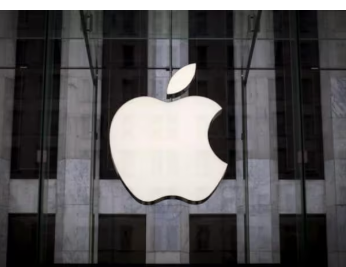DOJ in Right in Apple Antitrust Suit

by Ziv Golan ’26
On March 21, the Department of Justice sued Apple for violating antitrust laws and allegedly creating a “monopoly” on the smartphone industry. The lawsuit specifically points to how Apple only allows iPhone users to download apps made for iPhones. The lawsuit also alleges that Apple has banned the use of “super-apps,” apps that have a myriad of functions beyond the normal iPhone technology.
According to the lawsuit, the company also limits the use of non-Apple smartwatches on iPhones and disrupts texts and communication with other smartphones. “For years, Apple responded to competitive threats by imposing a series of ‘Whac-A-Mole’ contractual rules and restrictions that have allowed Apple to extract higher prices from consumers, impose higher fees on developers and creators, and to throttle competitive alternatives from rival technologies,” said Assistant Attorney General Jonathan Kanter of the Justice Department’s Antitrust Division after the case was filed. Broadly, the lawsuit alleges that Apple has created a monopoly on the smartphone industry, strongly discouraging iPhone users from communicating with people who own other types of smartphones.
Any iPhone user knows the troubles faced when trying to communicate with people who have other types of smartphones. When Android users are added to a group chat with iPhone users then members are restricted from creating a name for the group chat or even adding more people. This is a clear attempt from Apple to try to “bully” other smartphone users, providing clear benefits to buying iPhones and making users of other types of smartphones feel left out. This is a clear violation of antitrust laws, harming consumers heavily in the process.
Apple claims that the lawsuit is wrong and threatens the “principles that set Apple products apart” in the competitive smartphone market. This is blatantly false, considering the fact that iPhones are not nearly as popular in other parts of the world as they are in the United States. The technology that iPhones have is really no different from the technology present in Androids and other smartphones. One of the strongest reasons that Apple has been able to dominate the U.S. market is its marketing approaches that the DOJ has outlined as violating antitrust laws. Many Americans would be willing to purchase other types of smartphones if it weren’t for how inconvenient it would be.
The lawsuit is similar in some ways to previous DOJ antitrust cases against companies like Facebook and Amazon. However, unlike those lawsuits (which aren’t as strong — the one against Facebook being struck down in 2020) this case points to Apple’s market power as a technological hub where users can message people, listen to music, and more. Overall, the DOJ has crafted an incredibly strong lawsuit that has the potential to change the way Apple operates. This would benefit all consumers, even those who love iPhones because it would increase competition and innovation for products and apps and likely lower costs.